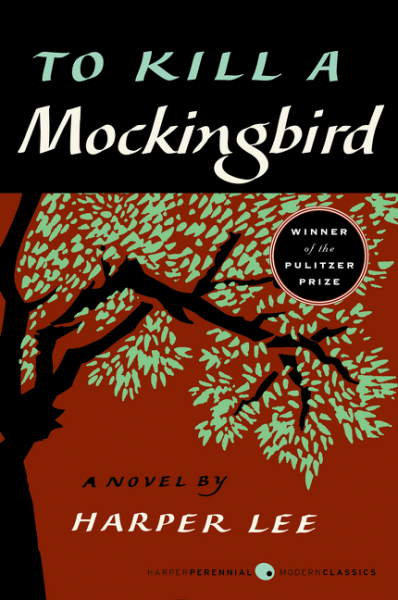Sitting down to write a piece on TO KILL A MOCKINGBIRD is a daunting task—what could I possibly have to say about this enduring American classic that hasn’t already been said? It won the Pulitzer Prize, has been translated into over 40 languages, has sold more than 30 million copies, and it is nearly impossible to get through high school in the U.S. without reading it. Harper Lee’s story of coming of age in the South during the depression, and of one man’s brave attempt to defend a black man accused of violating a white woman in the face of widespread racism and prejudice, is simply a masterwork of American literature.
When I started to re-read the novel (which I had not read since high school English), I was struck by the mastery with which Ms. Lee captured the experience of coming of age in America. Though Scout grows up in the Deep South in the 1930s and I grew up in New Jersey in the 1990s, her voice and her experiences resonated deeply with me. In reading about her mixture of fear and fascination with the Radley house, I was reminded of the house at the end of my block. On Halloween, my friends and I skipped it. But the year that we didn’t, we were rewarded with a kind smile and a king-sized candy bar each. In Mrs. Dubose, I see our grouchy, elderly neighbors who once called the police on my parents for not keeping the lawn mowed. Scout’s experiences with the cruelty of other children and confusion at the unfairness of the way society sometimes functions are surely shared by every child, including myself. Those first moments where she sees Atticus not just as her father, but as a flawed and fragile human, are part of the universal experience of growing up. Scout’s voice is humorous, unfailingly honest, and incredibly real. I feel like I know her, like she was my own childhood friend.
Atticus is the quintessential father figure, but he has flaws, he shows his age, and he is not immune to anger or fear or despair. Little moments—like when Atticus’ hand shakes as he folds his newspaper in the face of an angry mob—make him a masterful character. To me, this is what makes Atticus so inspiring. He is not perfect, but he fights for justice, honor, and the call of his conscience.
If you haven’t read TO KILL A MOCKINGBIRD since high school (or, God forbid, if you have never read it), this is my suggestion for you this holiday weekend: as you wait for the fireworks to begin, crack open a copy and start to read. Experience Scout’s quintessential American childhood and reminisce about your own. On the Fourth of July, we celebrate fifty-six men who risked being branded as traitors and put to death to sign a document declaring their belief that “…all men are created equal….” I know of no literary character in existence that embodies the spirit and purpose of those founding fathers better than Atticus Finch.








